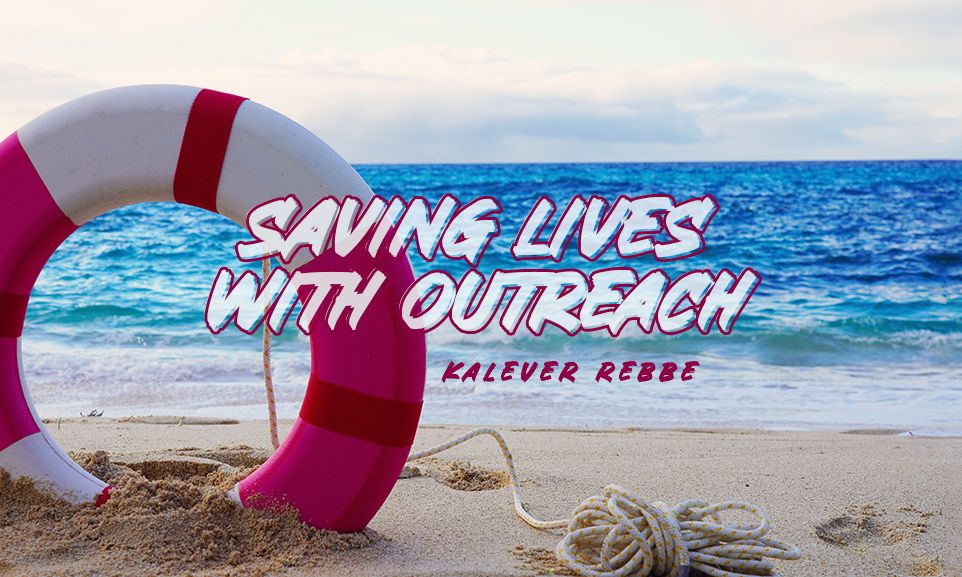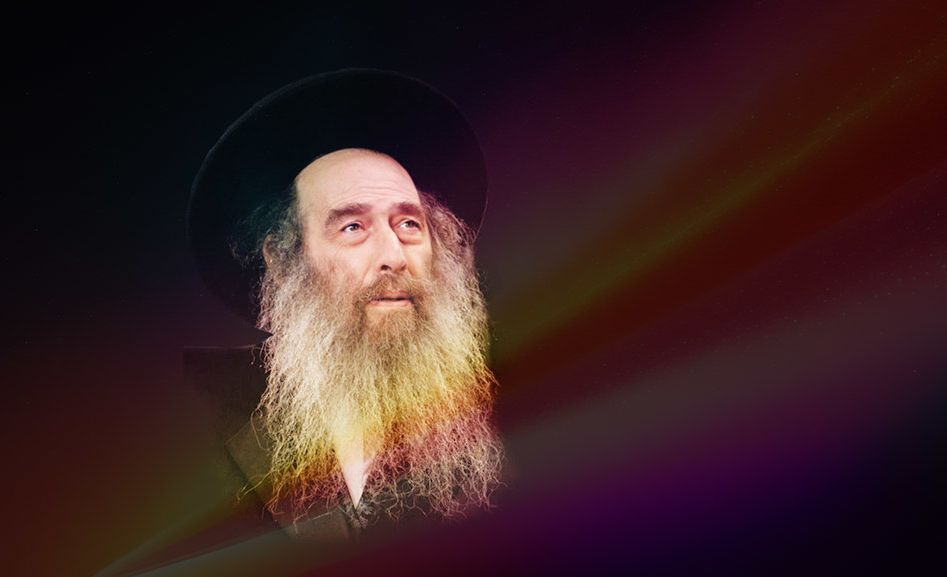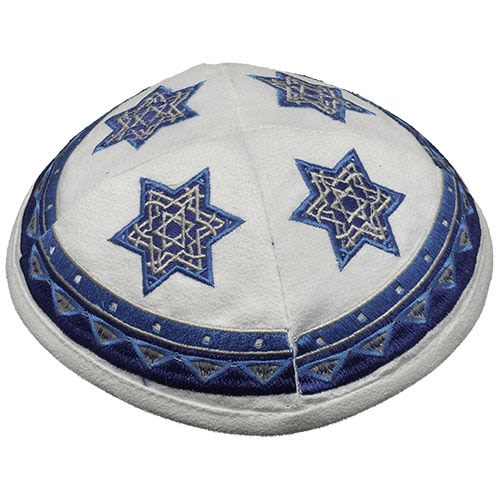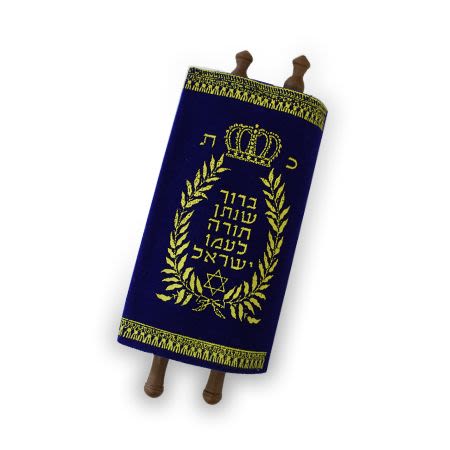
Saving Lives with Outreach
What is the greatest way to love one's fellow (ahavat Yisrael)? What way supersedes all other forms of charity? Answer: Providing someone with true knowledge.

“And the souls they had acquired in Haran”. (Bereishit 12:5)
The Misstep of Many Philanthropists
There are many charitable people whose philanthropic efforts focus on causes like medical research, hospitals, food banks, funds for the destitute etc. funding organizations that address physical needs. However, their philanthropy overlooks the spiritually impoverished. They don’t support organizations and individuals that are committed to “acts of spiritual kindness” by helping to strengthen faith in this world through kiruv – the outreach effort to bring those yidden who have become distant from Torah and mitzvot back to Hashem.
This is a monumental misstep. Addressing and caring for the spiritual needs of others is critical and it cannot be forgotten. In many ways, this work is far greater than the charitable efforts that provide for physical needs. R’ Tzvi Elimelech from Dinov taught (Bnei Yissachar, Adar, 2:1), that the greatest act of tzedakah is to provide someone with the right knowledge, since lacking knowledge is the worst form of poverty.
What is So Special About R’ Michel?
The Yismach Moshe, zt”l, related that one time, in the upper worlds, Rashi met R’ Yitzchak from Drohvtich, the father of R’ Michel from Zlotshov. Rashi asked R’ Yitzchak: “I hear that your son’s prestige is causing a tremendous commotion in the Heavens. What zchut (merit) does your son have to be the cause of such Heavenly excitement?”
“He studies Torah for its own sake,” replied R’ Yitzchak.
Seeing that Rashi wasn’t satisfied with that answer, R’ Yitzchak added, “And, he undergoes extended fasting and physical afflictions.”
Rashi was still not content with this explanation and R’ Yitzchak added, “and he helps those in need with acts of charity.”
Rashi responded, “That reason is still not good enough.”
R’ Yitzchak added, “He also helps many Jews return to Torah and mitzvot.”
Then Rashi responded, “Now I understand why R’ Michel has caused such a jubilant uproar in the Heavens.”
Saving an Eternal Life
It is well-known that Chazal taught that causing someone to sin is worse than murdering them. Sins impact the neshama, the soul, which is eternal and everlasting. The physical body, on the other hand, is temporary and merely serves as vessel for the soul as it briefly exists in this world.
Therefore, anyone who saves a Jewish soul, who answers their spiritual cry for help, fulfills the mitzvah of Ahavat Yisroel and gamilut chassidim in the greatest way. Helping someone spiritually is the ultimate act of kindness.
According to Halacha, Jewish law, the obligation to save one’s life supersedes all other mitzvot. The Shlah HaKodesh explains that if that is true for saving someone’s physical life, how much more so is that true for saving someone’s spiritual life!?
The Spiritual Holocaust
However, not everyone is capable of this work themselves. They may lack the skills for kiruv or they cannot teach others about Yiddishkeit. Even if that is the case, they must, at the very least, ensure that their charity supports those who can carry out this critical work.
The Chafetz Chaim wrote in Chomas Hadas (Chizuk Hadas, 3) that, according to Halacha, if a person sees someone drowning in a river, they are obligated to try and save them. If they cannot do that themselves, they must hire someone who can rescue that person. So too, explained the Chafetz Chaim, if you see another Jew drowning in the desires and behaviors that destroy him in this world and in Olam Haba, he must fund those individuals who know how to draw the hearts of these Jews back to Hashem. He is obligated to help save the spiritual lives of these Jews and, if cannot do it himself, he must financially support those who can.
We are living in times of a “spiritual Holocaust”, when we see countless lifeless souls who are suffering from a spiritual death. Those who naively ignore this reality, who do not try to help these souls by participating in or funding meaningful kiruv efforts, are like the people who heard about the atrocities unfolding in Europe during the Shoah (Holocaust) and still refused to utilize their resources to try and save the yidden from that unfathomable nightmare.
Avraham’s Army
The pasuk says: “And Abram took Sarai his wife and Lot his brother’s son, and all their possessions that they had acquired, and the souls they had acquired in Haran”. Rashi explains these were people that Avraham “brought under the wings of the Shechinah. Abraham would convert the men, and Sarah would convert the women, and Scripture ascribes to them [a merit] as if they had made them (Bereishit Rabba 39:14).”
Avraham Avinu’s focus was on these acts of spiritual kindness, of helping those who were lost, to find Hashem in their lives and in this world.
When someone invests and donates to organizations that help strengthen the emunah of others, they are also fulfilling a unique aspect of the mitzvah of Ahavat Hashem, loving Hashem. The pasuk says, “And you shall love the Lord, your God” (Devarim 6:5). Chazal (Sifri, Ve’etchanan 7) explains that this means that we need to work to bring the mankind to love Hashem, like the work of our forefather, Avraham Avinu. This work is an expression and fulfillment of Ahavat Hashem.
Return on Investment
When someone contributes financially to these efforts, Heaven reimburses him.
In this week’s parsha, Hashem commands Avraham Avinu: “Go forth from your land”…(Bereishit 12:1). He had to embark on a great journey. And, as he traveled, he would publicize Hashem’s presence in the world everywhere he went and to whomever he met along the way. Hashem promises him that even though this journey is burdensome and costly, it will not lead to a financial loss. As Rashi explains (Bereishit 12:2) that, through fulfilling this mission, he was blessed with riches.
The Zohar HaKodesh teaches in Parshat Terumah (129b) that Hashem blesses those who are involved in kiruv with the same riches that He provided to Avraham Avinu who educated and inspired the wicked to return to Hashem.
The First Kiruv Organization
Perhaps, there is another novel insight in our Parsha that further explains this very concept.
Avraham Avinu used his extraordinary wealth to acquire 318 servants, as the pasuk (Bereishit 12:12) describes. We can say, that the purpose of acquiring so many servants was, to create an entire workforce of individuals who were trained and able to spread the faith in Hashem by teaching and guiding others. He used his enormous wealth to build a kiruv apparatus.
We see that Chazal clearly described that this was the role of his servant Eliezer. As the Gemara in Yuma (28b) teaches, He is Damascus [Dammesek] Eliezer” (Bereishit 15:2). Rabbi Elazar said: The word Dammesek is a contraction of he who draws [doleh] and gives drink [mashke] to others from his master’s Torah.
Eventually, Avraham Avinu would release these servants, as it says in Pirkei D’Rebbe Eliezer (Chapter 16) that he freed his servant Eliezer. The Targum Yonatan (Bereishit 16:2) teaches that Avraham Avinu also released Hagar.
Once these servants were released, they were complete converts who lived Torah-centric lives; they had complete emunah in Hashem. They would then disperse throughout the world spreading the teachings of Avraham Avinu, reaching out to the wicked and educating them about faith in Hashem.
This is the second explanation that Rashi explains the pasuk “the souls they had acquired in Haran”: “And the simple meaning of the verse is: the slaves and maidservants that they had acquired for themselves”. This is a continuation to the first explanation from Rashi, because he acquired these “servants” to bring them under the wings of the Shechinah. He spent his funds to acquire an army of people who could spread the realization of Hashem in the world.
***
The Kalever Rebbe is the seventh Rebbe of the Kaalov Chasidic dynasty, begun by his ancestor who was born to his previously childless parents after receiving a blessing from the Baal Shem Tov zy”a, and later learned under the Maggid of Mezeritch zt”l. The Rebbe has been involved in outreach for more than 30 years, and writes weekly emails on understanding current issues through the Torah. You can sign up at www.kaalov.org.











Tell us what you think!
Thank you for your comment!
It will be published after approval by the Editor.